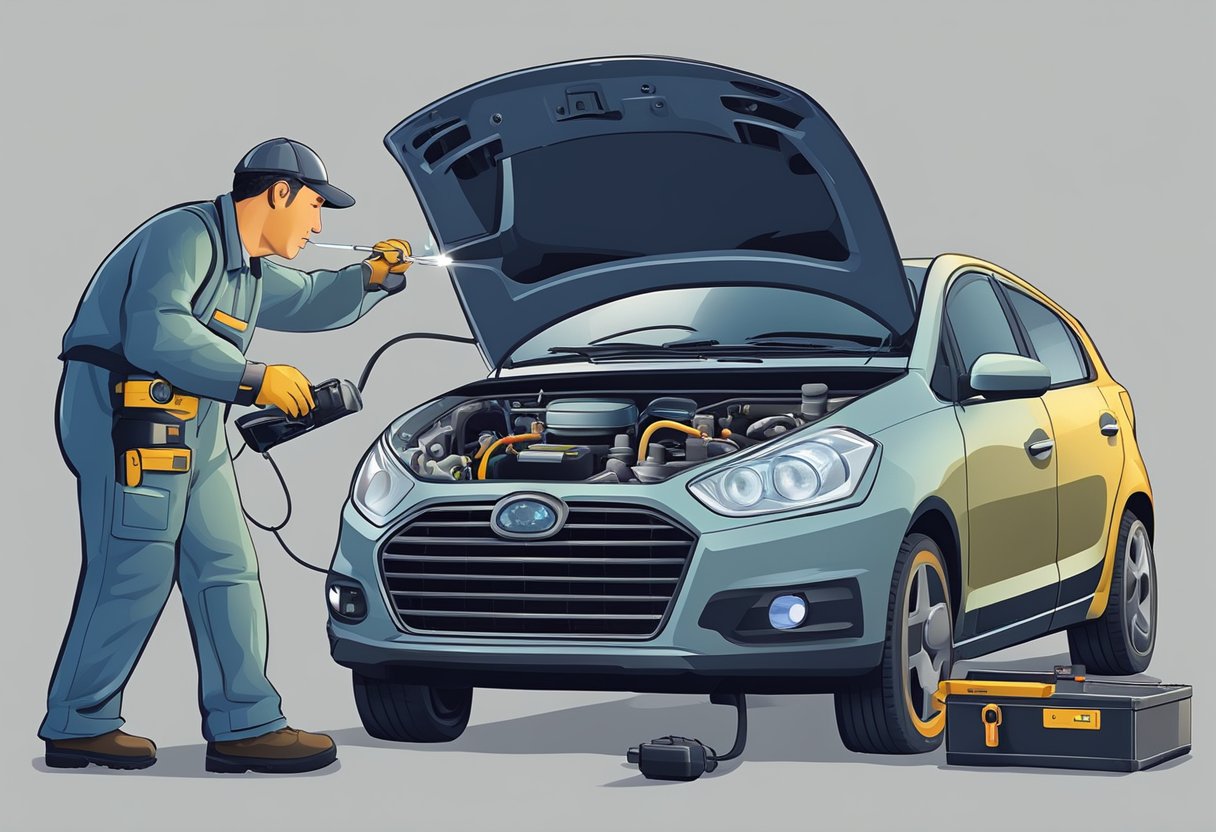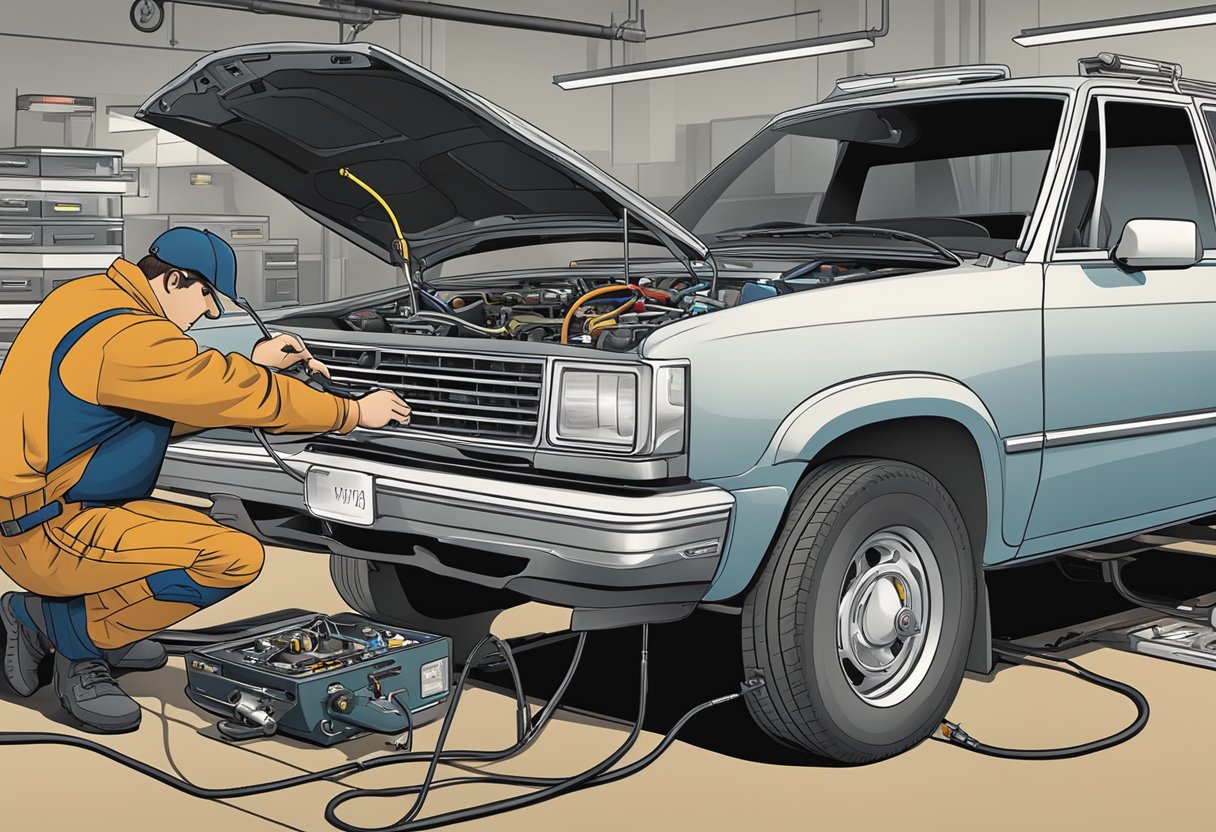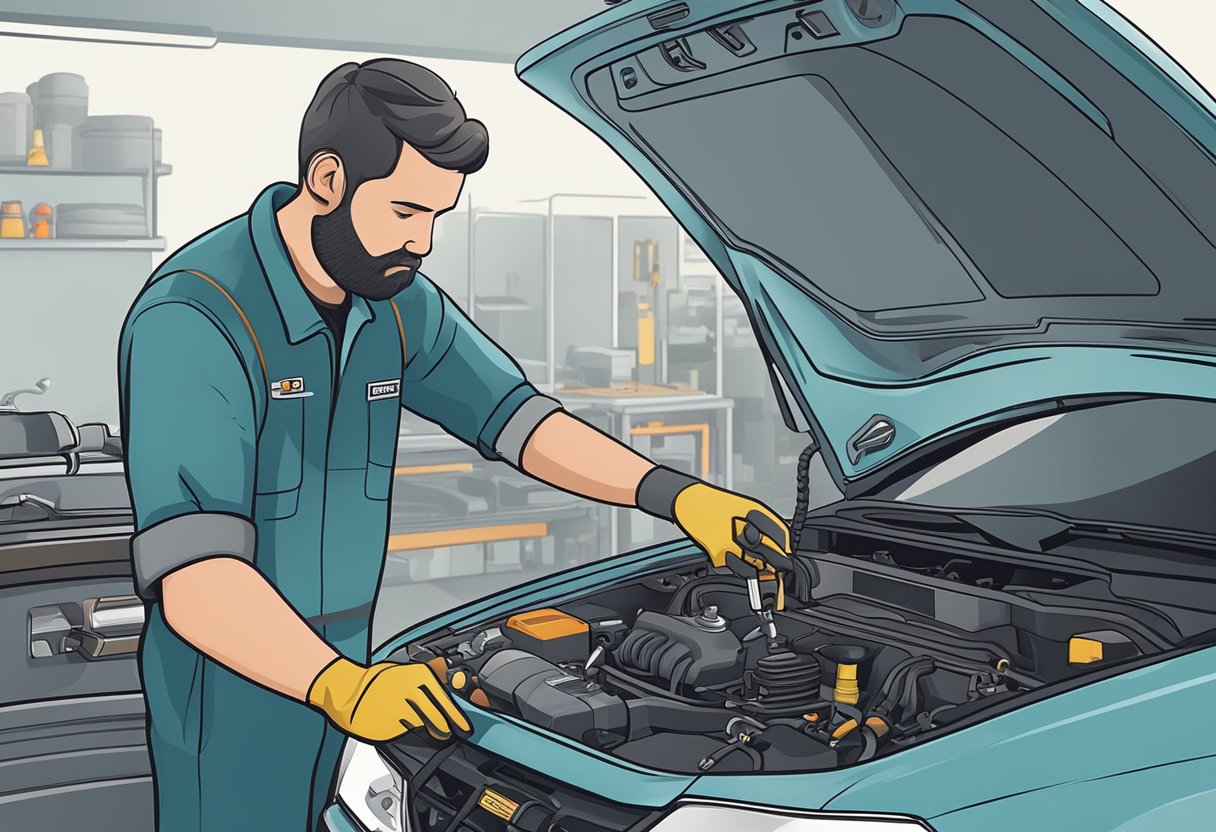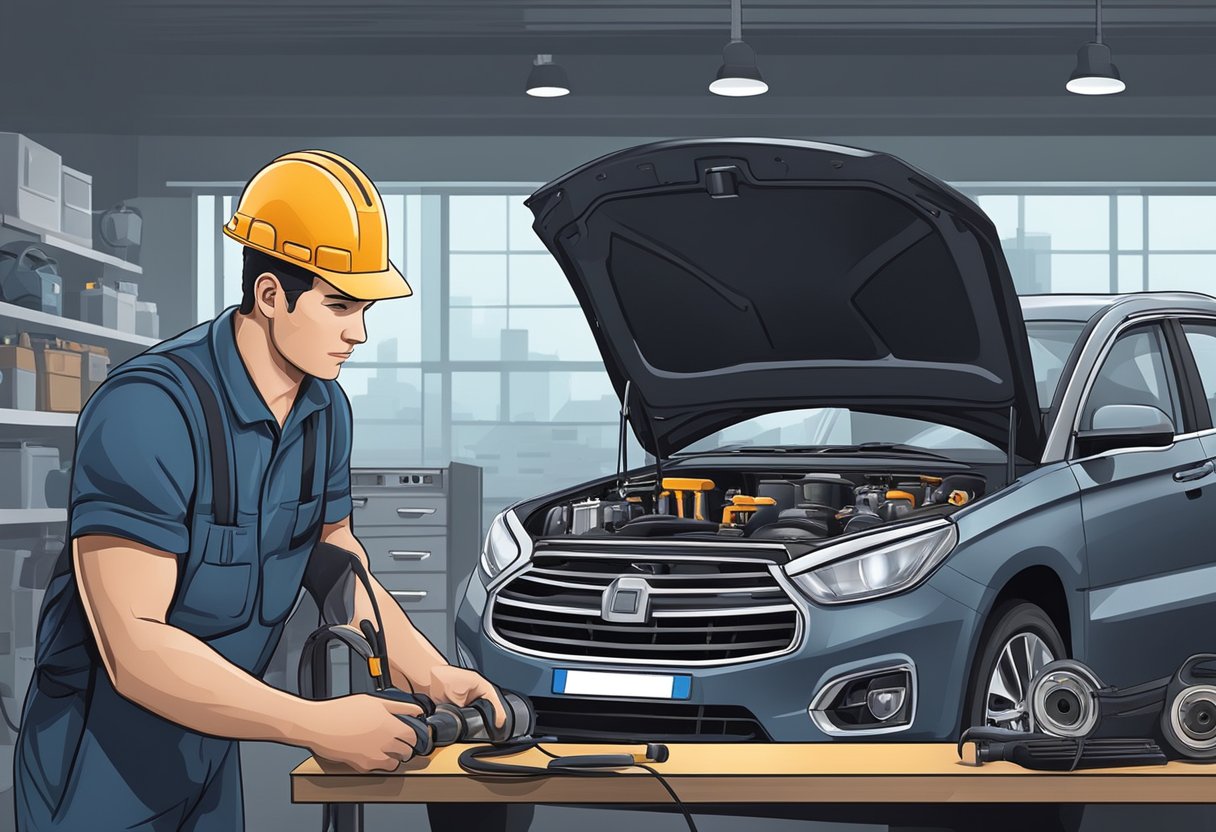When it comes to vehicle maintenance, one of the most frustrating issues that can arise is the dreaded check engine light. Not only does it signal that something is wrong with your car, but it can also be difficult to identify the root cause of the problem. One common issue that can trigger the check engine light is the P0449 code, which relates to a problem with the vehicle’s emissions control system.
Fortunately, with the right expertise and knowledge, tackling the P0449 code doesn’t have to be a daunting task. This article will provide an overview of what the P0449 code means, what can cause it, and how to fix it. By understanding the basics of this issue, you can take the necessary steps to get your vehicle back on the road and running smoothly once again.
Understanding the P0449 Code
Definition and Significance
If you own a vehicle, you may have come across the P0449 code at some point. This code is related to the evaporative emission control system, which is responsible for preventing fuel vapors from escaping into the atmosphere. The P0449 code specifically refers to a malfunction in the circuit of the vent solenoid valve.
The vent solenoid valve is a part of the evaporative emission control system that controls the flow of fuel vapors from the fuel tank to the engine. When the vent solenoid valve malfunctions, it can cause a variety of issues such as decreased fuel efficiency, increased emissions, and even engine performance problems.
Common Causes
There are several common causes of the P0449 code, including:
-
Faulty vent solenoid valve: This is the most common cause of the P0449 code. The vent solenoid valve can become stuck open or closed, which can cause the code to appear.
-
Wiring issues: Damaged or corroded wiring can cause the circuit to malfunction and trigger the P0449 code.
-
Failed PCM: In rare cases, a failed powertrain control module (PCM) can cause the P0449 code to appear.
If you suspect that your vehicle may have a problem with the evaporative emission control system, it is important to have it diagnosed and repaired by a qualified technician. Ignoring the issue can lead to increased emissions, decreased fuel efficiency, and even engine damage.
Diagnostic Procedures
When tackling the P0449 code, it is important to follow proper diagnostic procedures to identify the root cause of the issue. This section outlines the preliminary checks and advanced diagnostics that should be performed.
Preliminary Checks
Before diving into advanced diagnostics, it is important to perform some preliminary checks to ensure that the issue is not caused by something simple. These checks include:
- Checking the gas cap: A loose or damaged gas cap can trigger the P0449 code. Make sure the gas cap is tightened properly and not damaged.
- Checking the EVAP system hoses: Look for any cracks or damage in the hoses that connect the EVAP system components. Replace any damaged hoses.
- Checking the EVAP system purge valve: Test the purge valve to ensure it is functioning properly.
If the preliminary checks do not reveal any issues, it is time to move on to advanced diagnostics.
Advanced Diagnostics
Advanced diagnostics require specialized equipment and expertise. It is recommended that you take your vehicle to a professional mechanic for these diagnostic procedures. Some of the advanced diagnostics that may be performed include:
- Smoke test: A smoke test can be used to identify leaks in the EVAP system. Smoke is introduced into the system, and any leaks will be visible as the smoke escapes.
- Fuel tank pressure sensor test: The fuel tank pressure sensor measures the pressure in the fuel tank and sends the information to the engine control module (ECM). A faulty sensor can trigger the P0449 code.
- EVAP system component testing: Each component of the EVAP system should be tested to ensure it is functioning properly. This includes the canister, purge valve, vent valve, and pressure sensor.
By following proper diagnostic procedures, the root cause of the P0449 code can be identified and addressed. It is important to address the issue promptly to prevent further damage to the vehicle and to ensure proper emissions control.
Repair Strategies
When it comes to fixing the P0449 code, there are a few different repair strategies that you can use. Here are some of the most effective options:
Replacing the Vent Valve Solenoid
One common cause of the P0449 code is a faulty vent valve solenoid. If this component is malfunctioning, it can cause the EVAP system to fail and trigger the code. To fix this issue, you’ll need to replace the solenoid.
When replacing the vent valve solenoid, it’s important to choose a high-quality replacement part. Look for a component that is designed to fit your vehicle’s make and model, and that has a good reputation for reliability.
Sealing System Leaks
Another possible cause of the P0449 code is leaks in the EVAP system. If there are leaks in the system, it can cause the pressure to drop and trigger the code. To fix this issue, you’ll need to identify and seal any leaks in the system.
To find leaks, you can use a smoke machine to pump smoke into the system and look for any areas where the smoke is escaping. Once you’ve identified the leaks, you can seal them up using a high-quality sealant.
ECM Update or Replacement
In some cases, the P0449 code may be caused by a problem with the engine control module (ECM). If the ECM is malfunctioning, it can cause the EVAP system to fail and trigger the code. To fix this issue, you may need to update or replace the ECM.
Updating the ECM involves reprogramming it with the latest software to fix any bugs or glitches that may be causing the issue. If updating the ECM doesn’t work, you may need to replace it entirely with a new unit.
By using these repair strategies, you can effectively tackle the P0449 code and get your vehicle running smoothly again.
How Does Fixing the P0449 Code Compare to Resolving the P2099 Error in Modern Engines?
When it comes to modern engines, fixing the P0449 code typically involves addressing issues with the evaporative emission control system, while decoding the P2099 error often requires resolving problems related to the post catalyst fuel trim system. Both codes are important for maintaining the efficiency and performance of the engine.
Preventive Measures and Maintenance
Routine Inspections
Regular inspections can help detect and prevent P0449 code issues. It is recommended to inspect the fuel cap, fuel lines, and EVAP system components for any visible signs of wear and tear, damage, or leaks. Check the fuel cap for proper sealing and ensure that it is tightened securely. Inspect the fuel lines for any cracks, leaks, or loose connections. The EVAP system components, such as the charcoal canister, purge valve, and vent valve, should be inspected for any signs of damage or malfunction.
Lifestyle Adjustments
Making certain lifestyle adjustments can also help prevent P0449 code issues. Avoid topping off the fuel tank after the pump nozzle clicks off, as this can cause fuel to enter the EVAP system and trigger the P0449 code. Additionally, avoid driving with a low fuel level, as this can cause the fuel pump to overwork and potentially damage the EVAP system. Maintaining a healthy driving style, such as avoiding sudden stops and starts, can also help prevent P0449 code issues.
Regular maintenance is key to preventing P0449 code issues. By performing routine inspections and making certain lifestyle adjustments, you can help keep your vehicle’s EVAP system functioning properly and avoid costly repairs.
Professional Assistance
When dealing with the P0449 code, seeking professional assistance is often necessary to ensure that the issue is properly diagnosed and resolved. Here are some important considerations when seeking professional help.
When to Seek Help
If you have attempted to troubleshoot the P0449 code yourself and have not been successful in resolving the issue, it may be time to seek professional help. Additionally, if you are not comfortable working with automotive electrical systems or do not have the necessary tools and equipment, it is best to leave the task to a qualified technician.
Choosing a Qualified Technician
When looking for a technician to help with your P0449 code issue, it is important to choose someone who is qualified and experienced in emission control systems. Look for a technician who is ASE certified and has experience working with your specific make and model of vehicle.
You can also check reviews and ratings from other customers to ensure that the technician has a good reputation for quality work and customer service. Be sure to ask for a detailed estimate of the work to be done and any associated costs before agreeing to any repairs.
Remember, seeking professional assistance can help ensure that your P0449 code issue is resolved quickly and correctly, saving you time and money in the long run.
As an Amazon Associate we earn from qualifying purchases.













